Facebook ‘back at the table’, in media code negotiations, Government says
A leading tech body is calling on government and companies to stop their Facebook ad spend, as it rakes in $2.5m a day after blocking news sites.
A leading tech body is calling on all levels of government and the private sector to stop spending money with Facebook, claiming the social media giant is still raking in $2.5 million a day after blocking news sites from the platform this week.
According to the Australia Institute’s Centre for Responsible Technology the Federal Government alone is spending $20 million a year advertising on Facebook which this week thrust domestic violence groups and other vulnerable people into chaos.
Facebook has since apologised for shutting down key emergency services and charity pages in the wake of its news blackout, but the Australia Institute is calling for a widespread boycott of the platform – starting with our wallets.
The Centre for Responsible Technology director Peter Lewis said everyone should be reviewing how much money they spend with Facebook until it lifts the news ban in Australia.
“Many government and civil society pages were caught in the botched algorithmic dragnet last week. While some of them are back up many of them are now in a process of reapplying for access to the site which may take weeks,” he said.
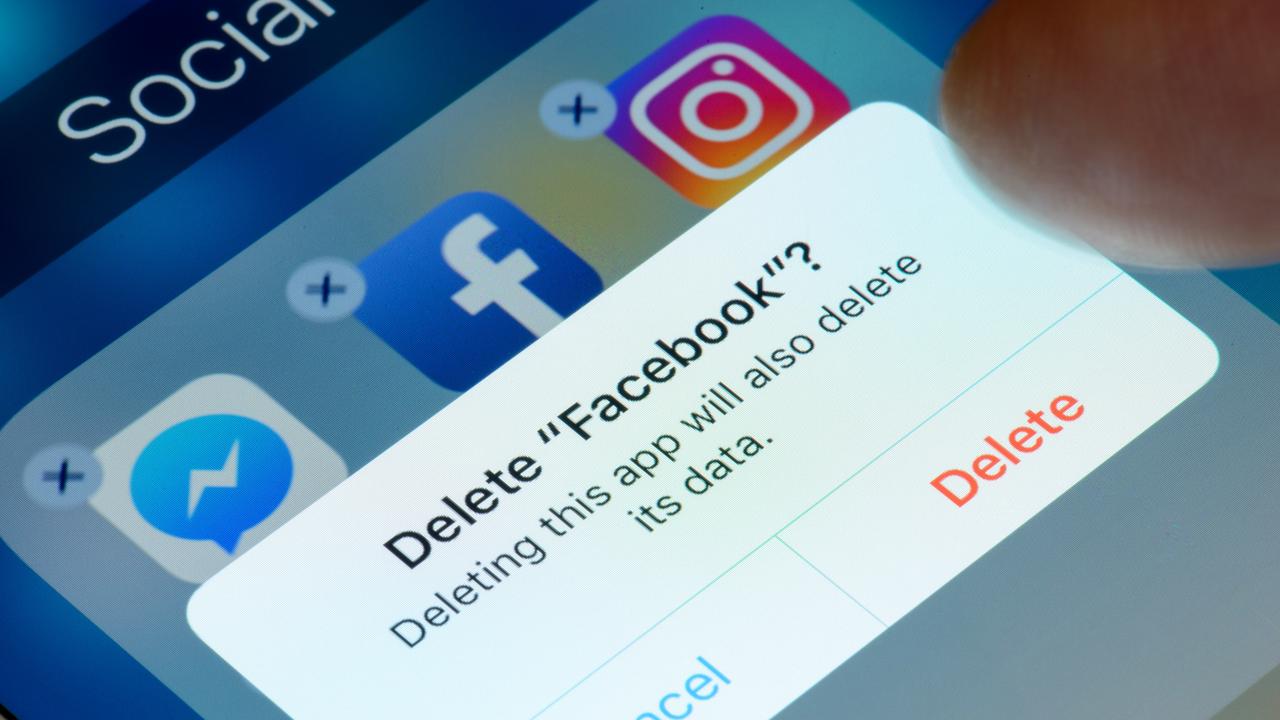
“We do recognise that some organisations have become wholly reliant on Facebook advertising to reach their audiences and for those for whom suspension is not possible, a broader review of this dependence is timely.
“Meanwhile, Facebook is happily harvesting millions in marketing and advertising revenue from these same organisations.”
“We estimate the Federal Government currently spends around $20 million per year on the platform alone. Redirecting some of this spending to local and community news outlines – both online and print – would contribute to their viability.”
Amnesty International director Tim O’Connor said the charity is one of many looking at putting its money elsewhere after being caught up in the bungle.
“Along with many of these organisations we are reviewing our spending on the platform and also how our hundreds of local groups and many thousands of activists mobilise for human rights improvements online,” he said.
FACEBOOK IN NEGOTIATIONS: PM
Facebook is ‘back at the table’ in negotiations with the Federal Government in relation to its media code, Prime Minister Scott Morrison has said.
Mr Morrison said he accepted an apology from the embattled social media behemoth after they shut down Australian news sites on their platform, with charity groups and vital information services caught up in the highly criticised moved.
“This is a really hard thing to do. We’ve never done it before,” said Simon Milner, the vice president of public policy for the Asia-Pacific region, the Sydney Morning Herald reported. “We are sorry for the mistakes we made in some of the implementation.”
However there was no apology for Facebook’s unprecedented retaliation against the proposed law.
Regardless the Morrison Government has viewed the apology as an olive branch.
“What I’m pleased about is that Facebook back at the table,” Mr Morrison said.
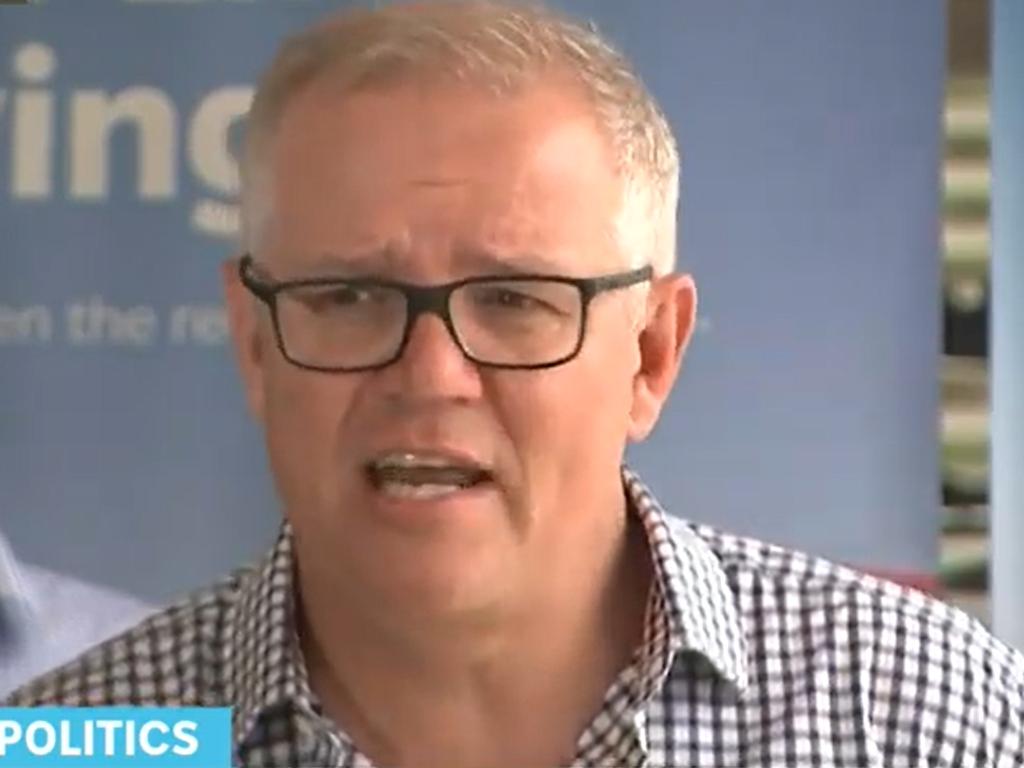
“That is what we want to see, we want to negotiate.
“Those actions were completely indefensible. We appreciate the apology. Now let’s get on with discussion and come to a successful conclusion.
“We have had a lot of support as Australia has led the way on this issue as we have on many occasions.
“We led the way in a tax on Amazon and in a crackdown on violent videos.
“We are no strangers in taking the lead on this and we are pleased Facebook is tentatively friending us again.
‘My focus is to get this issue resolved positively.
“[We want] a democratic society supported by an open media industry, this is what my government is motivated by.”
FACEBOOK COULD FACE PROSECUTION
Facebook could be prosecuted for “unconscionable conduct” in Australia and had left itself open to class-action lawsuits after wiping the pages of hundreds of charities, groups and businesses that relied on its platform this week.
The warning from the former head of Australia’s competition watchdog, Professor Allan Fels, also came as media experts called for the regulator to accelerate investigations into the tech giant, which they said had demonstrated a dangerous level of market power in Australia.
Reaction to Facebook’s rolling bans on news and information shown to its Australian users was swift and furious on Friday, with Google web searches for the term “Delete Facebook” soaring by 5000 per cent, an open letter against its ban signed by human rights groups, and condemnation from British MPs and the former head of Facebook in Australia.
Federal Treasurer Josh Frydenberg said he planned to hold further talks with the social network’s founder Mark Zuckerberg this weekend to overcome the impasse, though the pages of many Australian news outlets, small businesses, support groups and charities remained blank on the social network on Friday.
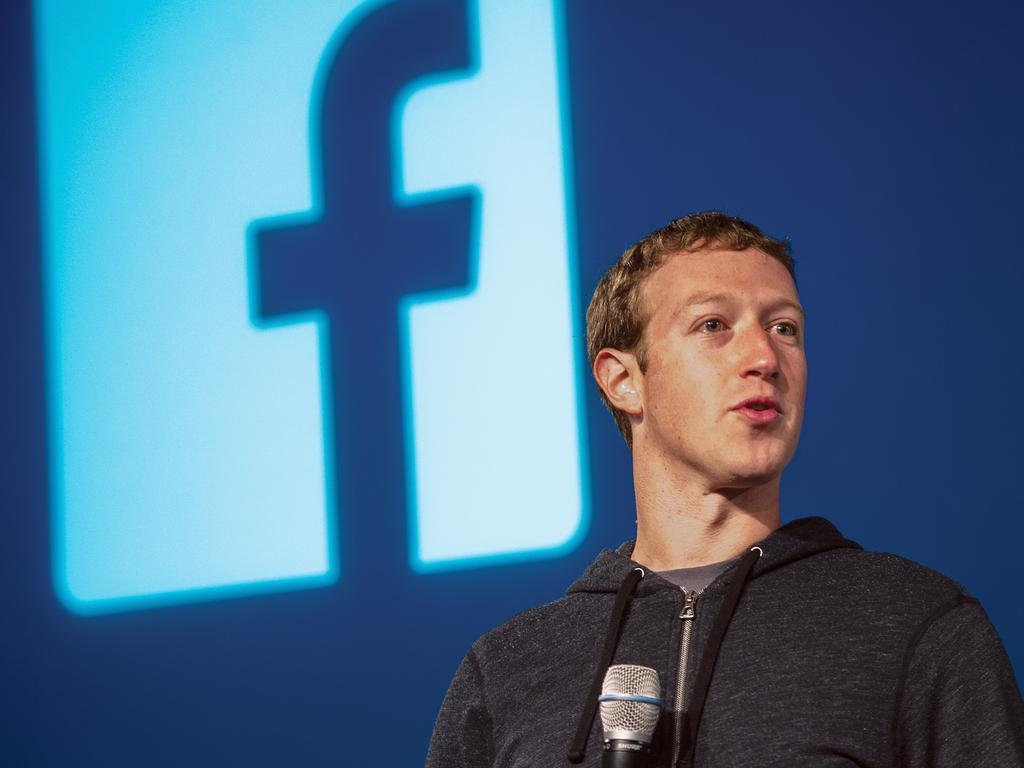
Facebook deleted news content across its platform for Australian users this week, with its managing director Will Easton saying it did so “with a heavy heart” to protest laws that would force the company to pay for the news it used on its platform.
Professor Fels, who headed the Australian Competition and Consumer Commission for 14 years and is now based at the University of Melbourne, said Facebook’s swift ban on a wide range of organisations on Thursday could leave the multibillion-dollar US firm open to legal action from victims and the regulator.
“Facebook could be liable for breach of unconscionable conduct laws due to the overnight cessation of services to businesses, especially very small business that largely require Facebook to disseminate their product,” Prof Fels said.
“I’m hearing quite a lot from very small publishers, for example, 75 per cent of whose customers go through Facebook and they’re devastated.
“It’s one thing to withdraw your services with a lot of notice to give dependent businesses the opportunity to adjust.
“To do it overnight in this fashion could put them in breach of unconscionable conduct laws and could possibly be a class action.”
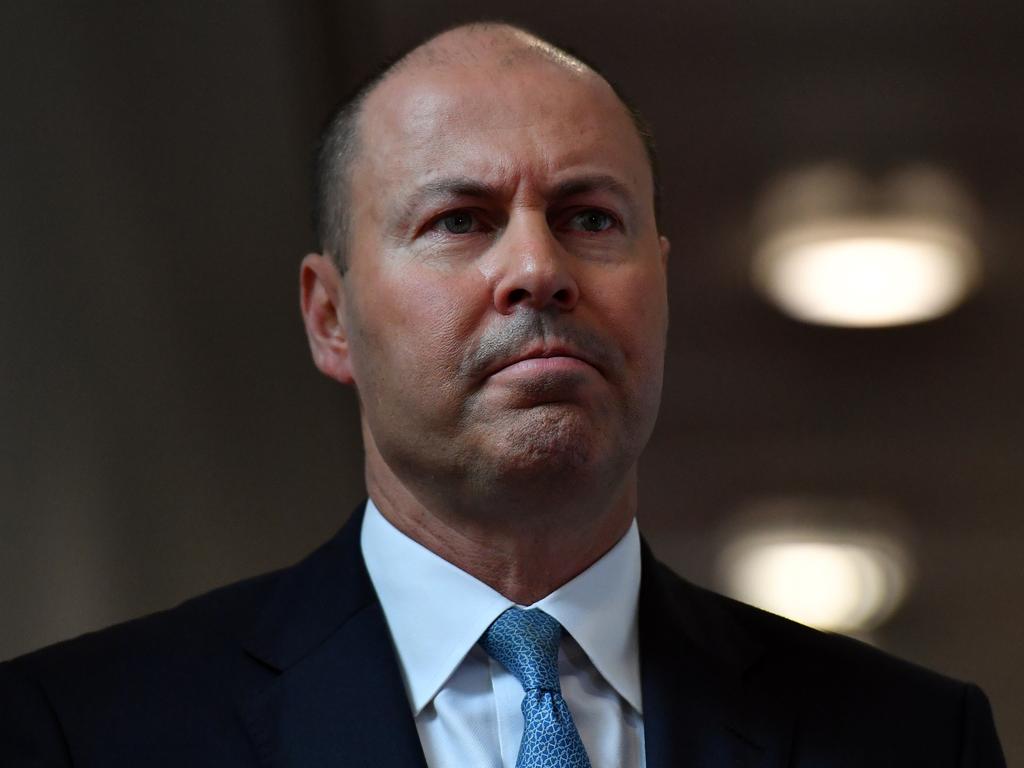
Professor Fels said Facebook’s sudden bans on content and organisations would also attract even more attention to the company’s “high degree of market power” in Australia and raise questions about whether greater regulation was needed to address “consumer protection, privacy, fake news (and) anti-competitive behaviour” on the digital platform.
The ACCC launched multiple investigations into Facebook and Google following its 18-month inquiry into digital platforms, and is currently prosecuting the company for misleading or deceptive conduct over a product that collected huge amounts of data from users, and is due to deliver a report into digital advertising services in August.
The social media giant is also under fire for blocking news content while supporting changes that would make it harder for law enforcement to stop paedophiles using its platform.
Reset Australia executive director Chris Cooper said further investigations into Facebook’s power should be expedited in the wake of its bans on news and information that proved its monopoly could have dangerous consequences.
“Facebook have always argued they don’t have market dominance but what (Thursday) proved is that Australia is at the whim of the commercial decisions made by a foreign company,” he said.
“In response to this week, those inquiries trying to address some of the issues could be sped up and strengthened.”
The News Media and Digital Platforms Mandatory Bargaining Code is due to go before the Senate next week.
HOW YOU CAN BEAT FACEBOOK NEWS BAN
While some users are finding sneaky ways to evade Facebook’s ban on news in Australia, others are watching in the hope that it could change the way news is consumed.
As many as 39 per cent of Australians used Facebook to see general news, according to research from the University of Canberra, and 49 per cent used it to see news about COVID-19.
But Reset Australia executive director Chris Cooper said social networks often served an unhealthy diet of news stories for their users, showing them only articles that would keep them on the site for longer rather than what they might really need to know.
“News feeds (on digital platforms) were never balanced because the algorithms are geared for engagement, not truth or accuracy,” he said.
“They are about keeping you hooked, which means serving up conspiracy and outrage.“
Mr Cooper said Facebook’s news ban could see more readers go beyond Facebook and deliberately seek out news from external sources that they might not ordinarily use.
“Hopefully it does mean there’s more organic reach to news sites,” he said.
“That will be better than an algorithm deciding what Australians should see. It could bring back agency to how we consume news.”
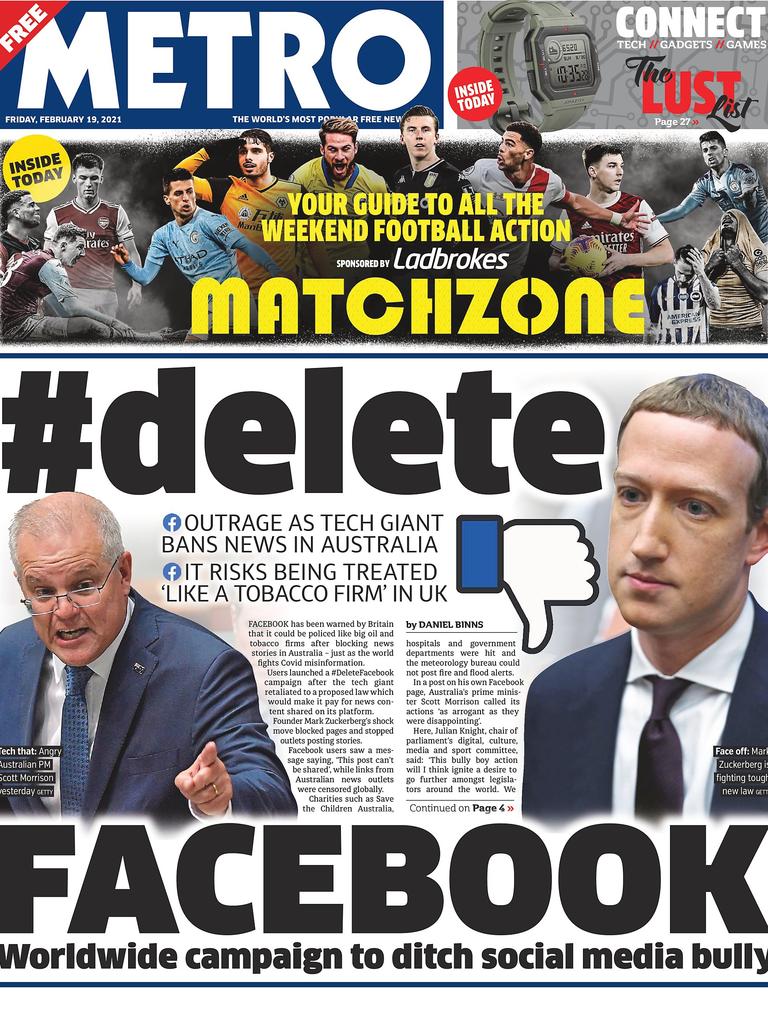
Dr Marc Cheong, a research fellow at the University of Melbourne’s Centre for AI and Digital Ethics, said there were many risks to Facebook’s widespread ban on news content, including users falling prey to misinformation or failing to stay informed.
But he said the man could also have an unintended upside and highlight social media’s effect on what its users read.
“It can hopefully help users avoid the unintended consequences of Facebook’s ‘filter bubble’ — the phenomenon of social media algorithms curating what they ‘think’ we want to see — which will prove healthy for science communication,” Dr Cheong said.
At the Senate inquiry into the news media bargaining code last month, Nine chief digital and publishing officer Chris Janz said many news outlets could expect to see readers and viewers change their habits in the wake of news bans.
Rather than scrolling and seeing news by accident, Australians who wanted to stay informed would seek it out directly, he said.
“I imagine that traditional publishers … would see a resurgence of people coming directly to our sites rather than coming to our sites by Google,” he said.
Any news ban may not be good for smaller outlets and those still finding a loyal audience though, Mr Janz warned.
A study by the News Media Alliance in Spain found media companies in that country suffered a “low and temporary” fall in traffic after Google removed news articles from its search engine but monthly visitors to news websites returned and in some cases grew over the longer term.
HOW TO AVOID THE FACEBOOK NEWS BAN
– Go direct to the source: Most Australian news outlets publish stories, galleries and videos on their own websites where items are ranked by newsworthiness rather than based on private information collected about you
– Find apps from your go-to titles: Many Australian media outlets offer apps that deliver fresh stories but also breaking news alerts and extra content, such as digital versions of the newspaper and access to highlight packages
– Use Apple News and Google News: Both services deliver a curated collection of Australian news stories, easy access to publications to which you subscribe, and access to topics you nominate
Originally published as Facebook ‘back at the table’, in media code negotiations, Government says




